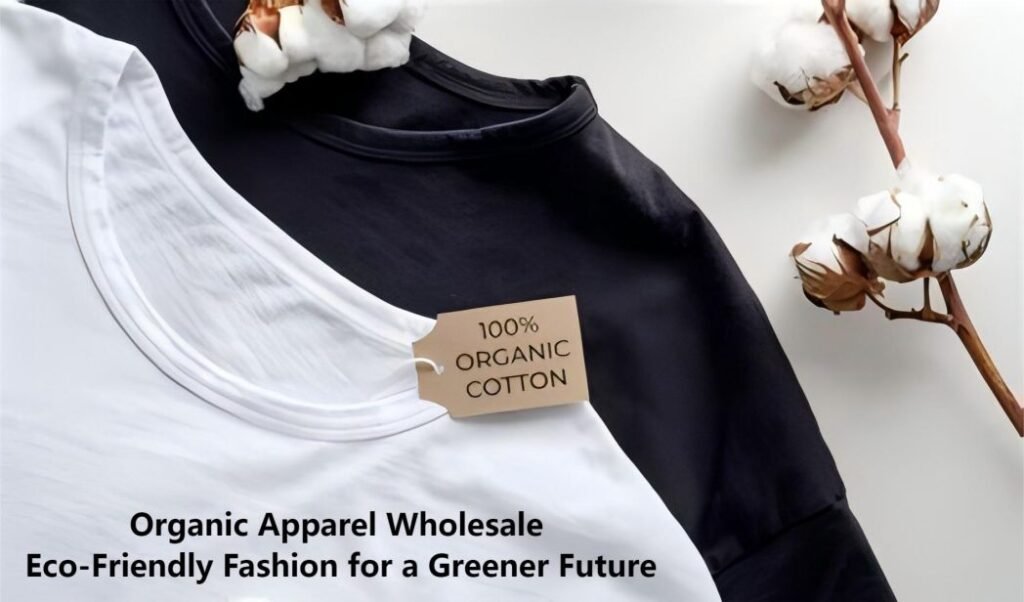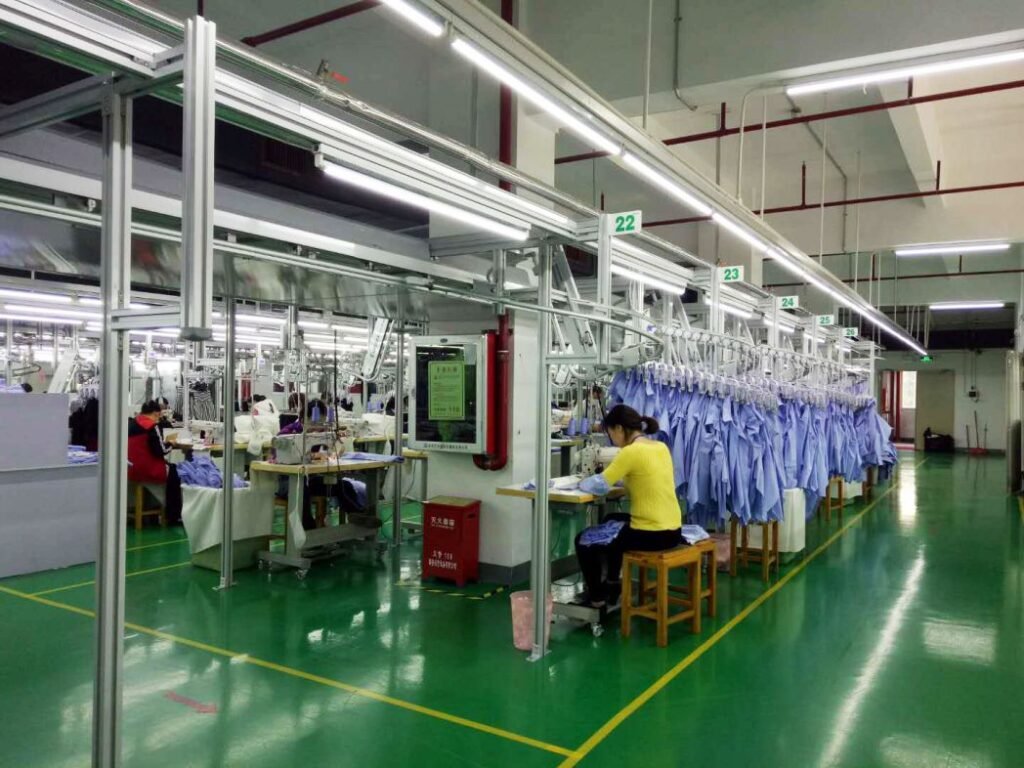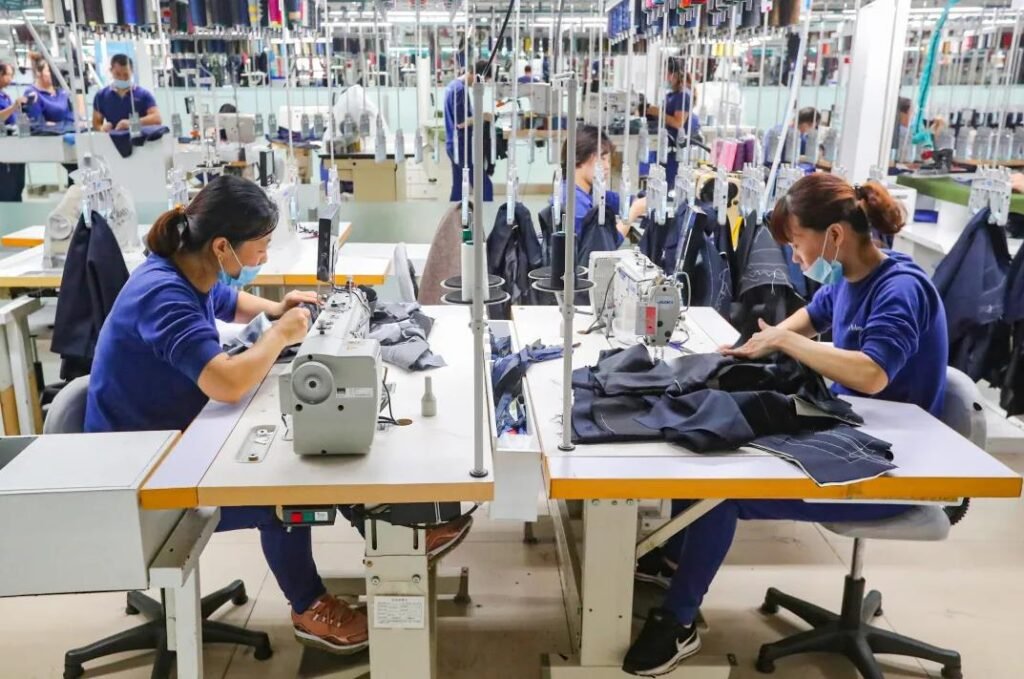No products in the cart.
Custom Yoga Pants
Organic Apparel Wholesale: Eco-Friendly Fashion for a Greener Future
Introduction to Organic Apparel Wholesale
In recent years, there has been a growing awareness and concern about the environmental impact of the fashion industry. As a result, more and more consumers are seeking out eco-friendly alternatives, including organic clothing. This has led to the rise of organic apparel wholesale, where retailers can source sustainable and ethically-made clothing in bulk. In this article, we will explore the world of organic apparel wholesale, its benefits, challenges, and the opportunities it presents for a greener future.

The Rise of Eco-Friendly Fashion
The fashion industry is notorious for its negative impact on the environment. From the excessive use of water and chemicals in textile production to the pollution caused by the disposal of clothing, the industry has been a major contributor to environmental degradation. However, in recent years, there has been a shift towards more sustainable and eco-friendly practices. This has given rise to the concept of eco-friendly fashion, which encompasses various aspects such as organic clothing, recycled materials, and ethical manufacturing.
Benefits of Organic Clothing
Organic clothing refers to garments made from materials that are grown without the use of synthetic pesticides, fertilizers, or genetically modified organisms (GMOs). The benefits of organic clothing are numerous. Firstly, organic farming practices promote soil health and biodiversity, as they do not rely on harmful chemicals that can contaminate the soil and water sources. Secondly, organic clothing is free from toxic residues, making it safer for both the wearer and the environment. Additionally, organic clothing is often made from natural fibers such as organic cotton, hemp, or bamboo, which are biodegradable and have a lower carbon footprint compared to synthetic materials.
Sustainable Materials Used in Organic Apparel
Organic apparel wholesale relies on sustainable materials that are both eco-friendly and socially responsible. One of the most commonly used materials in organic clothing is organic cotton. According to the Organic Trade Association, organic cotton production uses 91% less water compared to conventional cotton farming. Other sustainable materials used in organic apparel include hemp, which requires minimal water and pesticides to grow, and bamboo, which is a fast-growing and renewable resource. These materials not only reduce the environmental impact of clothing production but also provide a healthier and more comfortable alternative to synthetic fabrics.
Ethical Manufacturing Practices in the Wholesale Industry
In addition to using sustainable materials, ethical manufacturing practices are a crucial aspect of organic apparel wholesale. This means ensuring fair wages, safe working conditions, and no exploitation of workers throughout the supply chain. Many organic apparel wholesale companies prioritize transparency and work closely with their suppliers to ensure compliance with ethical standards. They may also obtain certifications such as Fair Trade or Global Organic Textile Standard (GOTS) to demonstrate their commitment to ethical manufacturing.
The Demand for Organic Apparel Wholesale
The demand for organic clothing has been steadily increasing as consumers become more conscious of the environmental and social impact of their purchasing decisions. According to a report by Grand View Research, the global organic clothing market is expected to reach $11.1 billion by 2025, with a compound annual growth rate (CAGR) of 10.4%. This growing demand presents a significant opportunity for retailers to tap into the organic apparel wholesale market and cater to the needs of eco-conscious consumers.
How to Choose the Right Organic Apparel Supplier
Choosing the right organic apparel supplier is crucial for retailers looking to enter the organic clothing market. There are several factors to consider when selecting a supplier. Firstly, retailers should ensure that the supplier has a strong commitment to sustainability and ethical practices. This can be verified through certifications such as GOTS or Fair Trade. Secondly, retailers should assess the supplier’s product range and quality to ensure that it aligns with their target market and brand values. Finally, retailers should consider the supplier’s reliability, including their ability to meet deadlines and provide consistent product availability.
Pricing and Profitability of Organic Apparel Wholesale
One common misconception about organic clothing is that it is more expensive than conventional clothing. While it is true that organic clothing may have a slightly higher price tag due to the use of sustainable materials and ethical manufacturing practices, the pricing can vary depending on the supplier and the specific product. However, retailers can still achieve profitability in the organic apparel wholesale market by carefully managing their pricing strategy and targeting the right customer segment. Many consumers are willing to pay a premium for eco-friendly and ethically-made clothing, making it a lucrative market for retailers.

Marketing Strategies for Eco-Friendly Fashion Brands
Marketing plays a crucial role in the success of eco-friendly fashion brands. Retailers in the organic apparel wholesale market should focus on highlighting the environmental and social benefits of their products. This can be done through storytelling, showcasing the sustainable materials used, and sharing the positive impact of their manufacturing practices. Social media platforms, influencers, and eco-conscious events can also be effective marketing channels to reach the target audience. Collaborations with like-minded brands or organizations can further amplify the brand’s message and increase its visibility.
Challenges and Opportunities in the Organic Apparel Wholesale Market
While the organic apparel wholesale market presents significant opportunities, it also comes with its fair share of challenges. One of the main challenges is the limited availability of sustainable materials. As the demand for organic clothing grows, there is a need for increased production of organic cotton, hemp, and other sustainable fibers. This requires investment in research and development, as well as collaborations between farmers, manufacturers, and retailers. Another challenge is the competition from fast fashion brands that offer cheap and trendy clothing. However, this challenge can also be seen as an opportunity for organic apparel wholesale companies to differentiate themselves by emphasizing the quality, durability, and sustainability of their products.
Success Stories: Leading Organic Apparel Wholesale Companies
Several leading organic apparel wholesale companies have successfully established themselves in the market and are driving the shift towards eco-friendly fashion. One such company is Patagonia, a renowned outdoor clothing brand that has been committed to sustainability since its inception. Patagonia uses organic cotton, recycled materials, and fair trade practices in its supply chain. Another success story is People Tree, a UK-based brand that focuses on fair trade and organic clothing. People Tree works closely with artisans and farmers in developing countries to create sustainable and ethical fashion.

Conclusion: Embracing Organic Apparel Wholesale for a Greener Future
The organic apparel wholesale market offers a promising path towards a greener future for the fashion industry. By sourcing sustainable and ethically-made clothing in bulk, retailers can meet the growing demand for eco-friendly fashion and contribute to the reduction of environmental and social impact. However, entering the organic apparel wholesale market requires careful consideration of suppliers, pricing strategies, and marketing efforts. By embracing organic apparel wholesale, retailers can not only tap into a lucrative market but also play a part in shaping a more sustainable and ethical fashion industry.
